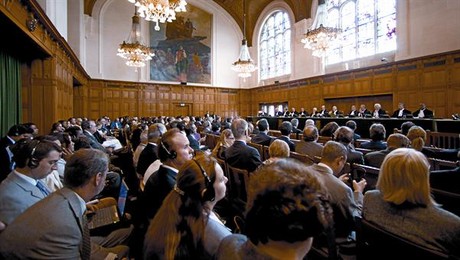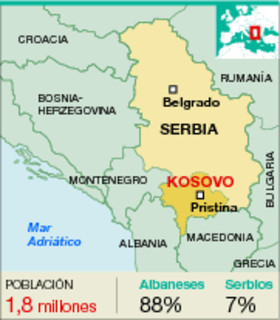The Prime Minister of Latvia does not see an issue in recognising Catalonia if it reaches independence in a “legitimate” way
In an interview with the Catalan News
Agency, the Prime Minister of Latvia, Valdis Dombrovskis, stated that
the ‘Catalan Way towards independence’ human chain is a “powerful
signal” that is “worth paying attention to”. He was referring to the
400-kilometre human chain requesting independence from Spain, which
spanned Catalonia from north to south on Wednesday and finally gathered
1.6 million people according to the Catalan Police. It was based on the
‘Baltic Way’ that took place in 1989 when Lithuania, Latvia and Estonia
were calling for independence from the USSR. When asked if Riga would
recognise Catalonia if it were to become independent, the Prime Minister
stated “if there is legitimacy in their process, then I would say,
theoretically, why not”.
The Latvian PM believed that we should
“look at options” on how to successfully resolve the demands for
independence. If the Spanish Government refuses the referendum to take
place, some voices suggest that Catalonia should perform a unilateral
declaration of independence, which according to Dombrovskis would be
“more complicated”, although he does not rule out the possibility of its
success. He also spoke of the problem of how Scotland and Catalonia –
if they were to gain independence – would enter the EU as “the issue”
has not been “worked on with a sense of urgency” yet. However, he
admitted that some discussions have already taken place at EU level
about what would happen if a territory of a Member State secedes, but a
final decision has not been taken yet.
The ‘Catalan Way’ human chain is “a powerful signal”
The ‘Catalan Way towards independence’ was a 400-kilometre-long human
chain that linked 1.6 million Catalan independence supporters.
Participants joined hands as the chain stretched from the French border
in the north all the way through major towns and cities until Valencia
in the south. The event was inspired by the ‘Baltic Way’ that took place
in 1989 and involved citizens from Latvia, Estonia and Lithuania who
made a human chain to campaign for independence from the USSR.
Catalan independence supporters joined hands on Wednesday at the historic time of 17:14 (11
th September
of 1714 is the date when Barcelona was conquered by the Bourbon troops
in the Spanish War of Succession) on Catalonia’s National Day and formed
a huge human chain. The Latvian Prime Minister stated that the human
chain is a “powerful signal” that is “worth paying attention to”. The
event built on last year’s demonstration on the same day, 11
thSeptember,
in which around 1.5 million Catalans assembled in Barcelona city centre
to call for a referendum to take place that will decide if Catalonia
remains part of Spain.
Ongoing negotiations with the EU
The Latvian Prime Minister noted how, “it is being discussed right
now”, the issue of whether new European states originating from a
current Member State would gain instant access into the EU, or if they
would have to “act as an accession country”. Both Scotland, which is set
to have a vote on independence from the UK in September 2014, and
Catalonia are evaluating the dilemma. Dombrovskis stated that “there are
different options” for a newly independent country, however, the issue
“is not being worked on with a sense of urgency”. However, he admitted
that some discussions have already taken place at EU level about what
would happen if a territory of a Member State secedes, but a final
decision has not been taken yet. “It would definitely be good for people
to know so that when they vote, they know the consequences”, he
continued.
International recognition
Dombrovskis revealed that so far Latvia has “not formulated an
official foreign position” on whether it would officially accept a new
country that were to gain independence within the EU. However, if there
were “legitimacy in their process, then I would say, theoretically, why
not”, he stated.
Following the ‘Baltic Way’ we were unsure whether the Soviet Union “would react with violence”
He noted how the 1989 ‘Baltic Way’ that linked Latvia, Lithuania and
Estonia was “one of the milestones towards independence because this was
something that caught the attention of Western countries”. The event
united people from all classes and walks of life and showed to the world
that “something serious going on, and that they should be actually be
engaging more actively with what was happening in the Baltic states”.
However he did reveal the uncertainty that followed the event. “There
was a very clear will of the Baltic states to regain their
independence, so the question was basically how the Soviet Union would
react” he noted. There were essentially two events that could have
occurred, “It would react with violence and a crackdown, or would it
actually allow this [independence] to happen”. The human chain can be
considered a success as Latvia gained independence two years later in
1991. “we can feel very happy that we were eventually able to restore
independence in a very short time and relatively peacefully way”,
concluded Dombrovskis.







